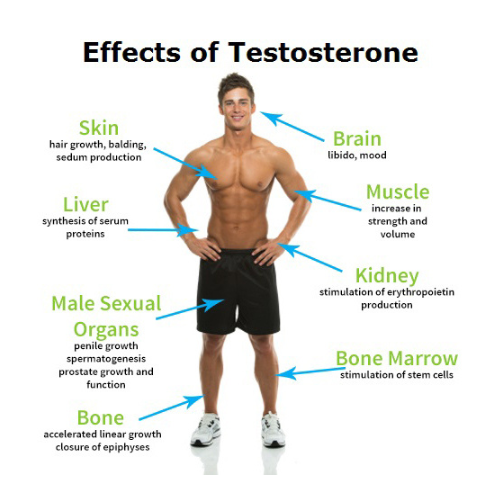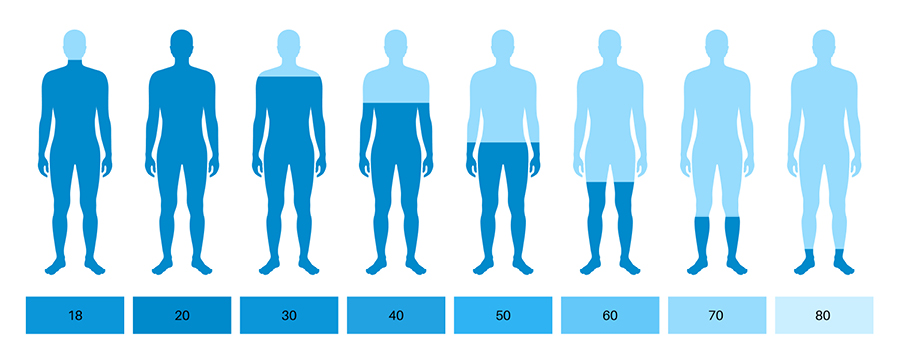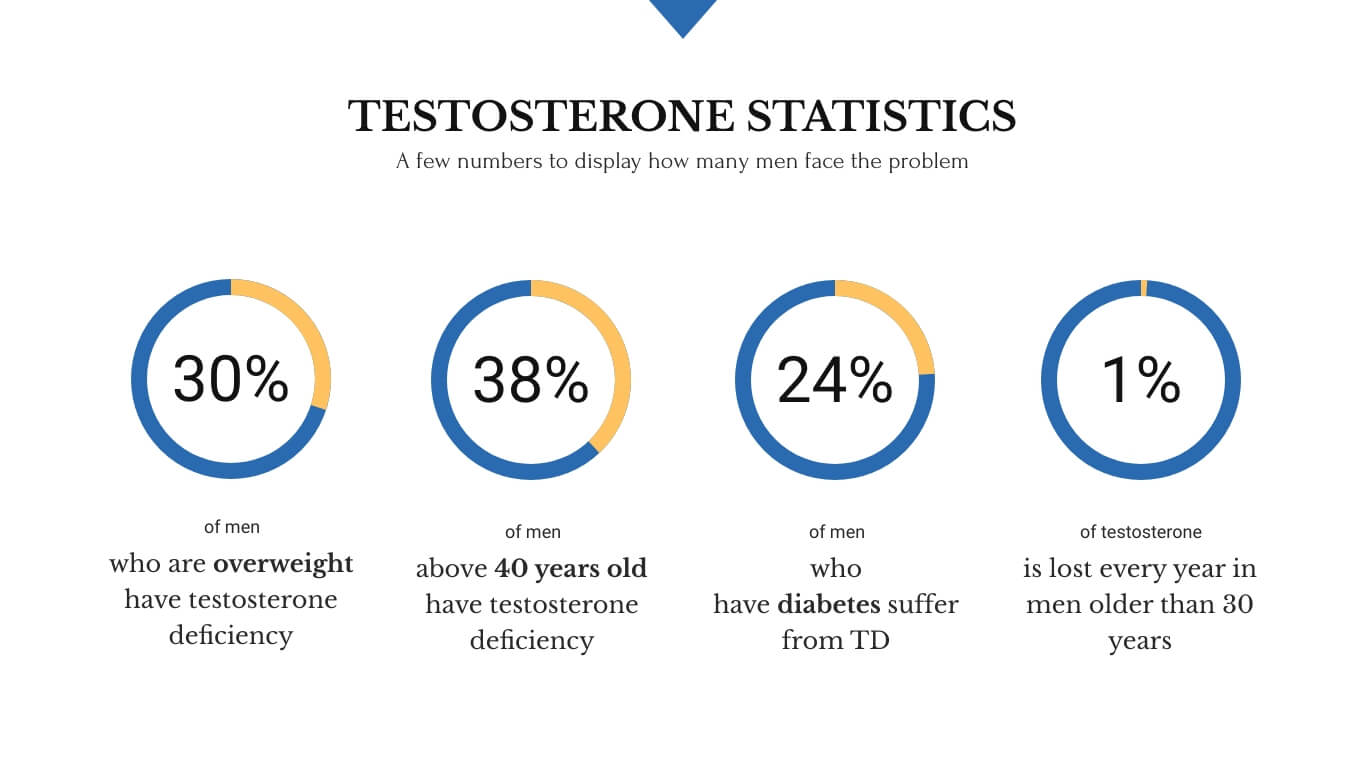The Hidden Decline: Navigating Testosterone Deficiency

Power Up! Your Ultimate Testosterone-Boosting Workout Plan
Revitalizing manhood: from viagra to macho testosterone
If you’ve been feeling unusually fatigued, experiencing a decrease in muscle mass, or noticing a diminished libido, you might be facing the silent challenge of low testosterone. Often overshadowed by its symptoms, low testosterone can affect anyone, bringing subtle yet significant changes to one’s quality of life.
Traditionally seen as a normal part of aging in men, low testosterone is no longer confined to a specific age group or gender. Changes in lifestyle, stress levels, and dietary habits have contributed to making low testosterone a more widely recognized condition, affecting both men and women across various ages.
What is Testosterone?
 Testosterone is often referred to as the male sex hormone, but it plays crucial roles in both men and women, impacting muscle mass, fat distribution, bone density, and red blood cell production.
Testosterone is often referred to as the male sex hormone, but it plays crucial roles in both men and women, impacting muscle mass, fat distribution, bone density, and red blood cell production.
In men, testosterone plays a fundamental role in the development of male reproductive tissues, including the testes and prostate, as well as promoting secondary sexual characteristics such as increased muscle and bone mass, and the growth of body hair. Additionally, testosterone is essential for health and well-being, contributing to the prevention of osteoporosis.
For women, though produced in smaller quantities, testosterone is equally vital. It contributes to ovarian function, bone strength, and sexual desire. In both genders, this The Hidden Decline: Navigating Testosterone Deficiency hormone is key for muscle strength, maintaining a healthy level of red blood cells, and influencing mood and energy levels.
Testosterone levels peak in early adulthood for men and naturally decline with age. However, when the drop is too significant or occurs prematurely, it leads to what is commonly known as low testosterone or “Low T.”

Causes of Low Testosterone
Several factors significantly impact testosterone levels and collectively influence hormonal balance. Chronic stress and insufficient sleep can negatively affect testosterone production, as heightened cortisol from stress and disrupted sleep patterns hinder the hormone’s natural secretion.
Nutrition and physical activity are also crucial; diets lacking in zinc, magnesium, and healthy fats, combined with a lack of exercise, can lead to lower testosterone levels. Furthermore, excessive alcohol intake and certain medications may reduce testosterone, affecting its production and utilization.
Hormonal imbalances and underlying medical conditions, such as obesity, diabetes, and specific issues with the testes, pituitary gland, or hypothalamus, directly impact testosterone’s production and regulation. By addressing these factors through lifestyle modifications, stress management, and seeking medical advice for any underlying conditions, individuals can work towards managing and potentially improving their testosterone levels.

Low Testosterone vs Hypogonadism: Understanding the Difference
Picture your body as an orchestra, and testosterone as its conductor, crucial for everything from muscle tone to mood. When this conductor skips a beat, symptoms like a muted libido, persistent fatigue, and unpredictable mood swings might signal low testosterone or “Low-T,” a scenario broader than aging, often influenced by today’s lifestyle. Male hypogonadism, akin to low-T but with specific medical roots, disrupts testosterone production due to testicular or brain signals malfunctioning.
Low-T and hypogonadism might sound similar with their shared symptoms, but they diverge at the cause—hypogonadism is a direct failure in hormone production, while low testosterone can emerge from varied lifestyle or health conditions.

Recognizing the Symptoms of Testosterone Deficiency
Understanding the impact of low testosterone is vital as it significantly influences health and well-being, presenting various symptoms that highlight a decrease in this crucial hormone. Reduced Muscle Mass and Strength: A noticeable decrease in muscle strength and bulk often marks the onset of low testosterone. Increased Body Fat: Testosterone imbalance may lead to increased body fat, sometimes presenting as gynecomastia, which is the enlargement of breast tissues in men.
Decreased Libido: Reduced sexual desire is a direct symptom of low testosterone, affecting one’s interest in sexual activities.
Erectile Dysfunction: This condition involves challenges in achieving or maintaining an erection, a significant concern linked directly to low testosterone levels, impacting sexual health and performance.
Low Energy Levels: Individuals with low testosterone frequently report a significant decrease in energy and an increase in fatigue, affecting daily life and overall well-being. Mood Swings and Irritability: Testosterone deficiency can lead to emotional disturbances, including sudden mood changes and heightened irritability. Difficulty Concentrating and Memory Issues: Adverse effects on cognitive functions, such as memory and the ability to concentrate, further illustrate testosterone’s essential role in mental health.
Boosting Testosterone Naturally
The good news is that low testosterone doesn’t have to be a permanent state. Through targeted lifestyle changes and natural interventions, it’s possible to boost testosterone levels and mitigate the symptoms. Here are some strategies:

Stress Management: The modern lifestyle often comes hand-in-hand with elevated stress levels, which can inversely impact testosterone levels through the increase of cortisol in the body. Integrating stress management practices, such as meditation, mindfulness, and spending quality time in nature, can help mitigate this effect.
Adequate Sleep: Never underestimate the power of a good night’s sleep on your hormonal balance. Testosterone production can be severely compromised by poor sleep quality or insufficient sleep duration. Aim for 7-9 hours of restful sleep each night to support hormonal health.
Dietary Adjustments: The foods you consume play a pivotal role in managing testosterone levels. Adopting a diet rich in whole foods, particularly those high in zinc, magnesium, and healthy fats, can foster hormonal balance. Simultaneously, reducing the intake of sugars and heavily processed foods can prevent further hormonal disruption.
Regular Exercise: Engaging in regular physical activity, especially strength training and high-intensity interval training (HIIT), can naturally elevate testosterone levels. Consistency in your workout routine is essential for sustained benefits.

Moderate Alcohol Consumption: Excessive alcohol consumption has been linked to a decrease in testosterone production. Moderation is key, as it helps in maintaining optimal hormonal balance and overall health.
Increased Sexual Activity: Research suggests that engaging in sexual intercourse or activity can have a positive effect on
testosterone levels. However, it’s important to note that this effect is generally temporary. Sexual activity can stimulate a short-term increase in testosterone, offering a natural, albeit brief, uplift in hormone levels.
Natural Supplements: Adding supplements with zinc, magnesium, Ginseng, Fenugreek and L-arginine can boost your
testosterone levels. These nutrients are key for hormonal health and support testosterone production. Integrating them into your regimen can enhance overall hormonal balance.

By adopting these lifestyle changes, it’s possible to navigate the journey from low testosterone towards a revitalized, more vibrant self. These natural interventions offer a solid foundation for enhancing your health and well-being, setting the stage for further personalized treatments and solutions. However, if symptoms persist despite a dedicated natural regimen, it might be prudent to consult a healthcare provider. This isn’t about sidelining natural methods but ensuring a comprehensive health strategy, especially when underlying conditions could be influencing your hormonal balance.
Conclusion
Testosterone deficiency might be a silent challenge, but it’s not an insurmountable one. By understanding its causes, recognizing its symptoms, and adopting lifestyle changes, you can take significant steps toward reclaiming your vitality and well-being.



